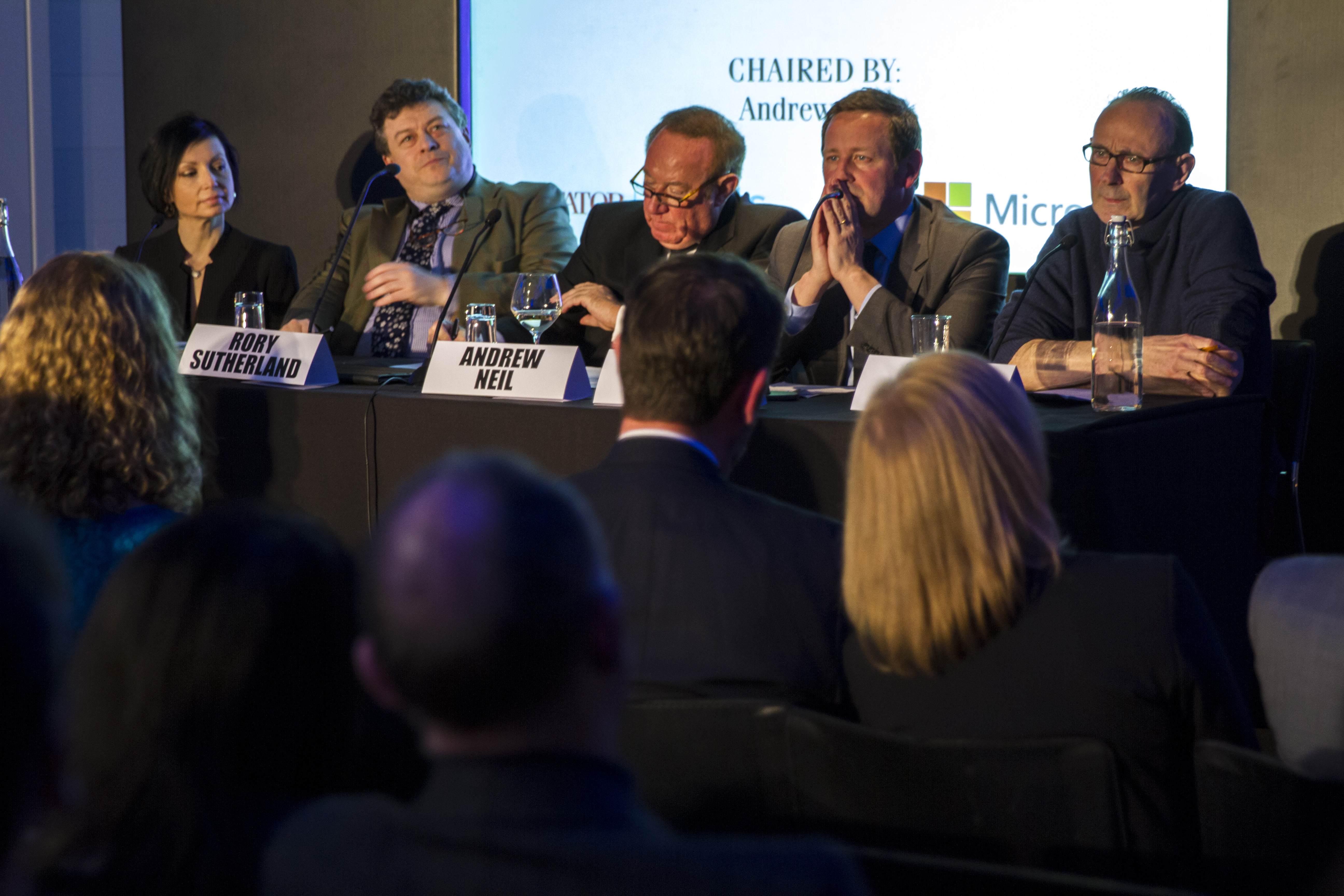
Tech Talk: ‘Always On’ Generation – Is technology changing childhood?
As an older generation, it’s natural for us to conclude that technology is redefining childhood in some fundamental way. But, for children growing up today, the influence of technology in their day-to-day lives is simply all part of a normal upbringing. It’s how their world works. The essence of childhood has not changed. Rather, technology has seamlessly integrated the real world and the digital one, and made vast amounts of information, social interaction, fun – and a bit of risk – just a click, touch or tap away. This was the conclusion of our inaugural Microsoft ‘Tech Talk’ hosted by The Spectator.
Accordingly, one of the biggest challenges for our generation is to ensure that children from a young age are taught how to responsibly and appropriately engage with technology — so they can reap the benefits that technology has to offer and minimise the risks. This requires us to work together – industry, government, educators, parents, law enforcement and others – to ensure people of all ages and abilities have access to the tools, resources and educational guidance they need to help keep them safer online.
 |
| The inaugural Microsoft ‘Tech Talk’ discusses whether technology is changing childhood
April 02, 2014 |
By chance, this Tech Talk marked a significant personal milestone. Recently, I celebrated my one-year anniversary as Microsoft’s first Chief Online Safety Officer. My position is also a first for the technology industry as a whole and, its creation is a strong indication of the increasing emphasis being placed on how people – and the younger generation, in particular – need to more safely interact with technology. There’s no doubt that access to the Internet and online technologies are critical to success in the 21st century. And, along with those many benefits comes a need to understand the associated risks.
Driving awareness around these challenges forms a large part of Microsoft’s work in this area. Online safety is about risk management: knowing what risks are out there, and managing and mitigating them accordingly. It’s about enabling people to maximize their desirable online experiences, while minimising those associated with illegal, inappropriate or illegitimate content, contact, conduct or commerce – what we call “The Four Cs.”
It’s a fluid and ever-evolving challenge and, again, one that requires not only the technology industry, but others, as well, to work together to tackle these novel issues at their core.
For Microsoft’s part, we have been working in this area for a long time – nearly two decades, and we offer not only innovative tools and technologies, but also a wealth of materials, free of charge, to help raise public awareness, inform and educate individuals and families about how best they can protect themselves when they go online.
Still, there’s always more than can be done. We need to work to instil good judgment in young people; urge them to think critically, and to consider their actions over the long term. We need to invest in digital literacy, digital ethics and digital etiquette in our classrooms, and ensure that children have a stake in the outcome of their digital educations. And, we need to inform and educate young people about the potential unintended consequences of their behaviour online.
To hear more about our work in this area, and to learn the steps you can be taking to help keep your family safe online, visit: http://www.microsoft.com/en-gb/about/family-safety#/
I was joined on the
Tech Talk
panel by
Ed
Vaizey
, the Minister for Culture, Communications and Creative Industr
ies
;
Rory Sutherland, The Spectator magazine’s ‘Wiki Man’
and
UK psychologist and author Oliver James
for a lively discussion chaired by veteran broadcaster
Andrew Neil
. We discussed
the opportunities and challenges of a life lived through technology for the ‘Always On’ generation.

